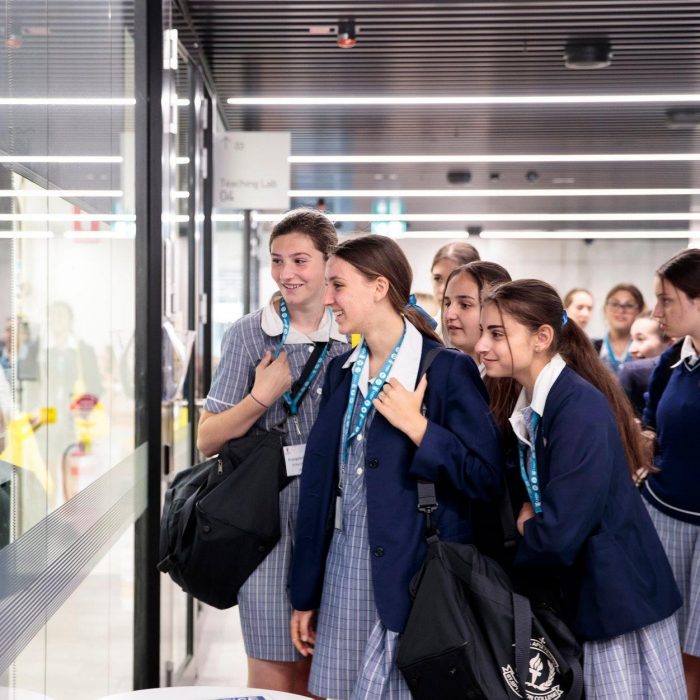Campus tours
Discover all that UNSW has to offer with a campus tour guided by experienced student ambassadors. Our tours give you a real understanding of the student experience and facilities.
Find out more opens in a new window
Are you a school student, teacher or career adviser? At UNSW Science, we offer a range of on-campus events and activities throughout the year for primary and secondary schools. You can also take advantage of interactive science and STEM-focused activities in your school or online, presented by our staff and students.
We run many exciting events open to the general public too. Explore our events calendars to discover what’s coming up:
We hope to see you soon on campus or online.
Moving from high school to university is an exciting and challenging time. UNSW Science aims to make this transition as smooth as possible for all students.
Explore the wide variety of degree options and science subjects available at UNSW. Not sure which area of science you want to study? We recommend the Bachelor of Science, opens in a new window and Bachelor of Advanced Science (Honours), opens in a new window. You’ll be able to study a diverse range of science subjects in these degrees and try out different areas that interest you before you need to settle on your specialisation/s.
Learn more about our undergraduate courses
We encourage students to get involved with a range of extra-curricular activities. Arc, opens in a new window, our student organisation that manages the clubs and societies program, is a great place to start, along with the student life information, opens in a new window on the UNSW website.
If you are considering living on campus in student accommodation, learn more about our residential communities, opens in a new window.
Find information on degrees and how to apply to UNSW, opens in a new window
The following terms will become very familiar to you when studying at UNSW.
A program at UNSW is your degree and will have a four-digit program code (for example, 3970 Bachelor of Science).
A major is a defined sequence of study within a program (for example, Bachelor of Science with a Major in Chemistry). In some programs, it's possible to do more than one major.
All programs and majors at UNSW are made up of courses. Courses are like subjects at school. Each course has an 8-digit course code (for example, CHEM1011) and usually involves lectures, tutorials and labs. In science there are various types of courses:
Each course is made up of lectures (large classes with a formal presentation from a lecturer) and tutorials (smaller, interactive classes led by a tutor) or labs (hand-on classes in a laboratory). Full-time students generally complete four courses each term.
Courses, majors and programs at UNSW are measured in Units of Credit (UoC). A standard study load is 8 courses, or 48 Units of Credit (UoC), per year spread over three terms.
A large academic department focused on a broad area. At UNSW there are six faculties (Arts, Design & Architecture; Business; Engineering; Law & Justice; Medicine & Health; and Science).
A smaller academic department that sits within a faculty and focuses on a more specific subject area. Within each faculty are a number of schools who teach the courses in their area of expertise. In science, there are eight schools: Aviation; Biological; Earth & Environmental Sciences (BEES); Biotechnology & Biomolecular Sciences (BABS); Chemistry; Materials Science & Engineering; Mathematics & Statistics, Physics; and Psychology.
UNSW Science works closely with career advisers to provide advice on our study options and potential science careers.
Visit our careers advisers resources website to access additional resources, including ordering publications for your students and booking in school visits and campus tours.
For general enquiries and questions, contact UNSW Science:
